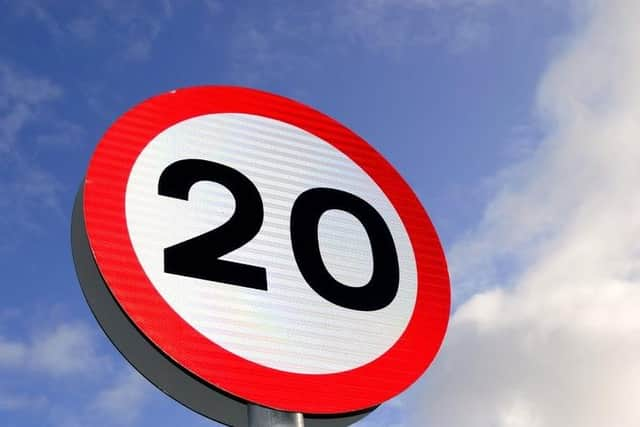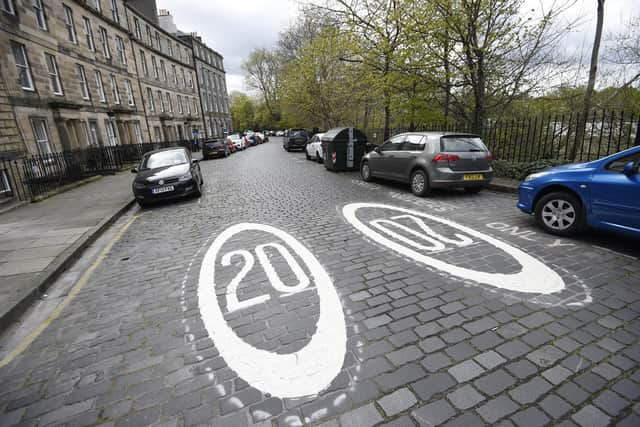20mph speed limits look set to be coming to your town soon – Alastair Dalton


Among a mini avalanche of reports just published by Transport Scotland as part of a new major projects blueprint were plans for a “national strategy to guide the implementation of 20mph zones".
The Greens had wanted 20mph to be the default limit in residential areas nationwide.
Advertisement
Hide AdAdvertisement
Hide AdIn rejecting the plan, Transport Secretary Michael Matheson stressed that the Scottish government supported the introduction of 20mph zones, but not a “one-size-fits-all blanket approach”.
The proposals in the new strategic transport projects review appear to make good on that, and could accelerate a process that is already happening.
I remember reporting on the first stage of this back in 2013, when a trial 20mph limit on the south side of Edinburgh the previous year was shown to reduce crashes.
That not only prompted the city council to extend the limits across the capital, which it did over the next five years, but Transport Scotland to state it was “committed to encouraging local authorities to consider 20mph zones in all residential areas”.


Since then, a fair few councils have introduced them, such as Glasgow, where the city centre 20mph limit is due to be spread to most other areas.
Drivers in towns and villages in the Highlands will be familiar with such mandatory limits, while Fife alone has some 500 20mph zones.
The Borders has been one of the latest areas to introduce the new limit, with 80 settlements being covered from last October.
Even if Transport Scotland was to argue it is simply progressing an existing policy, the inclusion of 20mh limits in the new strategy will be welcomed by campaigners as a positive signal of intent.
Advertisement
Hide AdAdvertisement
Hide AdIt’s a logical and essential part of tipping the balance of attractiveness away from driving and towards walking, cycling and wheeling.
This is not any sort of prohibition. It is simply a recognition that in built-up areas, vehicles must more equally share roads with folk getting about by other means.
I’d never want to cycle on a road with a speed limit above 30mph, and as a pedestrian I find it far more pleasant when the limit is 20mph.
Pedestrians are up to five times more likely to survive being hit by a car at 20mph compared with 30mph.
Official figures show an average of 24 walkers and cyclists were killed a year in 30mph zones from 2015-19, compared to just two in 20mph zones.
If you take in others such as those in cars and motorbikes, the difference is nearly 30.
Despite the grumbles of drivers – perhaps from those not used to the lower limits – Transport Scotland pointed to research it commissioned which showed nearly three-in-four people backed 20mph zones in towns and cities.
It said a separate survey found a similar proportion of drivers agreed that 20mph limits created “better places for people to walk, wheel and cycle”, even though more than half said they were frustrating.
Advertisement
Hide AdAdvertisement
Hide AdNot so long from now, 20mph limits could cover most built-up streets in Scotland. If that could potentially save nearly 30 lives a year, it has to be worth it.
A message from the Editor:
Thank you for reading this article. We're more reliant on your support than ever as the shift in consumer habits brought about by coronavirus impacts our advertisers.
If you haven't already, please consider supporting our trusted, fact-checked journalism by taking out a digital subscription.
Comments
Want to join the conversation? Please or to comment on this article.
